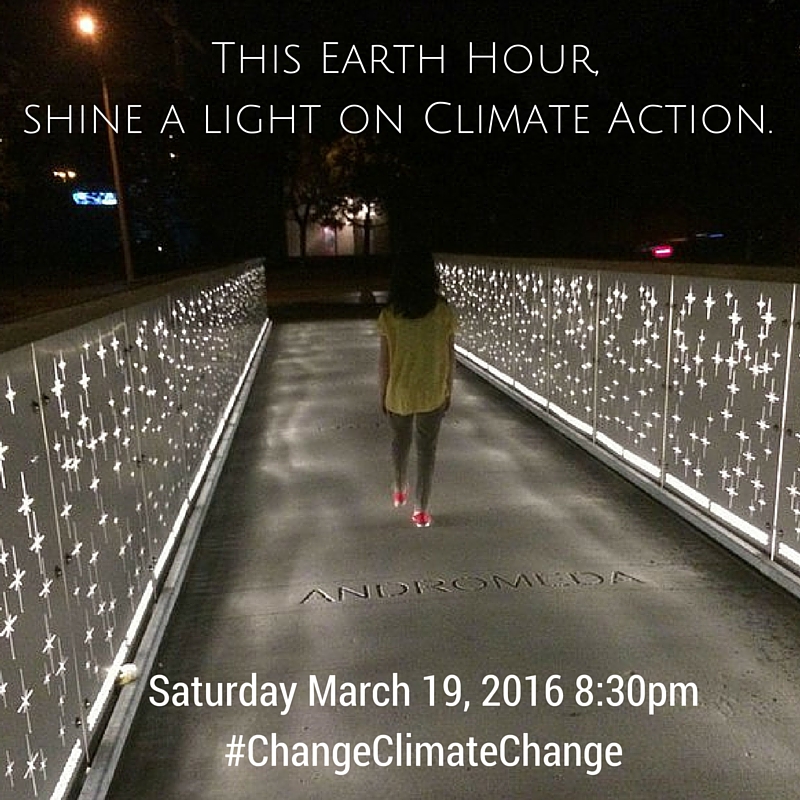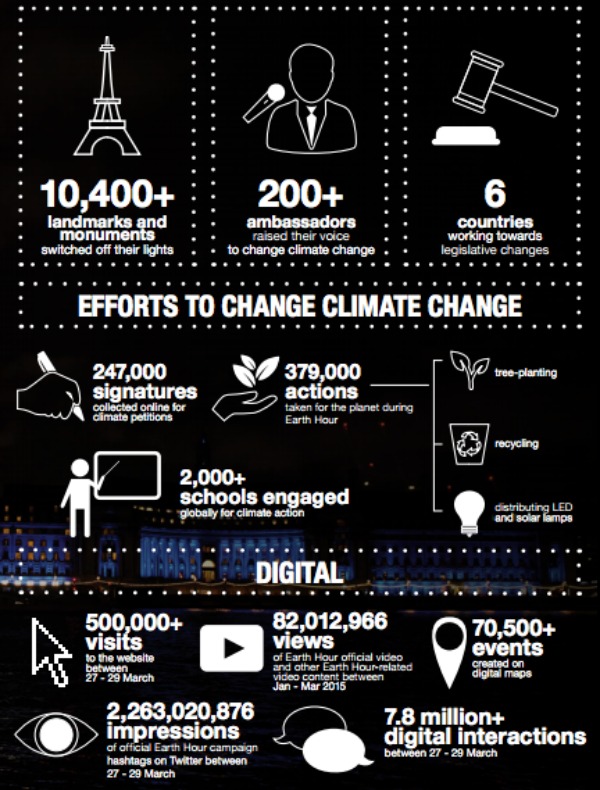Earth Hour is a global movement by the WWF that asks us to power down our electricity and power up our efforts to affect climate change. Wherever you are in the world, when your clock strikes 8:30pm on Saturday March 19th, join the global community and shut down for the hour.
You might be wondering “Why?” or “What good will that do?” or “How does me shutting off all of my lights for an hour make a difference?” If you are asking these questions, you’re not alone. A lot of people are with you. So, let’s talk about it.
When you decide to join Earth Hour, you are making a choice and a statement.
Just by making the decision, you are saying that you know that climate change is an issue that you are concerned about and that you are choosing to take it seriously.
When you turn off your lights and other non-essential electricity in your home for Earth Hour, you are doing something.
The action that you are taking when you power down shows that you know that by reducing your usage, you can make a difference for the future.
You’re probably going to use what you’ve done (and feel good about) to inform what you’ll do next.
This is the big part. Knowing that you have the power to make an impact by using less power, the hope of Earth Hour is that you will continue to think more and use less.
Still not convinced that you can make an impact? As of 2015, Earth Hour has grown to become the world’s largest grassroots movement for the environment. While the global lights out remains an impactful visual call-out, its true impact is starting to be seen in areas and communities fighting climate change on an everyday basis. Here are some of the highlights from Earth Hour 2015:
And there’s more. Here are some amazing outcomes of Earth Hour’s impact:
- WWF Uganda started the world’s first Earth Hour Forest
- More than 250,000 Russians voiced support for better protection of their country’s seas and forests
- Argentina used its 2013 Earth Hour campaign to help pass a Senate bill for a 3.4 million hectare Marine Protected Area in the country
- Thousands of wood-saving stoves were distributed to families in Madagascar
- Solar-powered lights were installed in three villages without electricity in India
- In Paraguay, WWF used the Earth Hour platform to build public support to gain an extension of the logging moratorium, helping to reduce deforestation
- Education programs for schools were launched in Thailand and Taiwan
- Hundreds of thousands of LED lights were installed by girl scouts in the USA
- More than 2123 mitigation actions submitted by Earth Hour City Challenge 2014 participating cities
Earth Hour is an opportunity to make commitments to do what you can, use what you need, show what you know and make better choices.
I hope that you’ll join me and the millions of people around the world to say that we can turn off the lights and turn on a commitment to #ChangeClimageChange. As always, when you’re looking to add your voice to something that you care about, social media is a great way to let people know that you’re on board. You can follow @EarthHour on on Twitter and @earthhourofficial on Instagram.
For more information about Earth Hour, visit the official website, https://www.earthhour.org



Leave a Reply